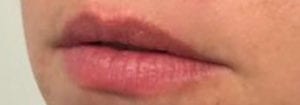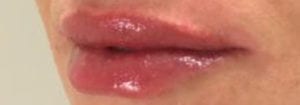
What is sleep Apnea?
Sleep apnea is a condition in which your breathing stops and starts again as you sleep. This can prevent you from getting proper rest, cause you to fall asleep at unexpected times during the day, and lead to accidents and injuries while you are awake. Just as seriously, sleep apnea can put you at risk for health issues such as pulmonary hypertension, heart disease, and stroke.
The specialists at Capital Center® for Oral and Maxillofacial Surgery offer effective treatment for sleep apnea. Patients often come to us after they have tried non-surgical avenues without success. The procedures that our doctors perform provide permanent improvement and predictable outcomes. As a result, patients can breathe comfortably, sleep soundly, enjoy a better quality of life, and reduce health-related risks.
Treatment Options for Sleep Apnea
Doctors sometimes prescribe therapy with CPAP (continuous positive airway pressure) as a non-surgical treatment for sleep apnea. A CPAP machine helps open the airway to normalize breathing as you sleep. Some patients find the therapy effective, but others cannot tolerate wearing a CPAP mask to sleep every night.
An alternative non-surgical approach to sleep apnea is a wearable appliance. These devices include mouth guards that ease the lower jaw forward and splints that hold the tongue in place. Although effective for mild to moderate cases of sleep apnea, 75 percent of patients choose to stop using these appliances after a while and continue experiencing symptoms as a result.
Capital Center® for Oral and Maxillofacial Surgery provides patients with surgical solutions to sleep apnea. These are the only options for resolving the condition permanently. If you suffer moderate to severe symptoms and can’t tolerate CPAP or an appliance, consider having a procedure to cure your sleep apnea.
Maxillomandibular Advancement (MMA)
Maxillomandibular advancement repositions the upper and lower jaws and moves the chin outward, which pulls the entire skeletal structure forward. This shift opens the airway, significantly improving or completely resolving sleep apnea.
In most cases, our specialists perform MMA using general anesthesia in a hospital setting. We combine state-of-the-art 3D diagnostics and CAD / CAM manufacturing to make custom splints, guides, and plates ahead of the surgery. During the procedure, the doctor frees the upper and lower jaw from the skull, advances both together, and then secures them in place.
Many of our patients who have MMA surgery also have cosmetic problems related to jaw and skeletal abnormalities. After the procedure, the typical sleep apnea patient will actually have more aesthetically pleasing features because the skeleton will be in an ideal position. Moving the jaws also tightens facial skin, diminishing lines and wrinkles. While cosmetics are not the focus of treatment, an improved appearance is a wonderful benefit of the surgery.
Beyond MMA, our doctors can also treat mild snoring with laser-assisted palatoplasty. This form of treatment is a serial process; the doctor makes small incisions in the soft palette, and after they heal, patients evaluate whether their snoring has improved or if they need a follow-up procedure. Recovery from palatoplasty can be painful in the seven-to-ten days that follow, and so we will spend a lot of time in consultation advising patients about the process.
IS SLEEP APNEA TREATMENT RIGHT FOR YOU?
Patients are often referred by another doctor for advanced treatment with our practice. During your initial visit, one of our specialists will perform an examination and go over records from your other medical providers to determine the best course of action.
Typically, sleep apnea patients take part in a polysomnography, or sleep study, as part of their care. If you have not yet had a polysomnography, our practice will work with you and your medical provider to have the study completed. If you have had a sleep study already, your doctor will review the results in preparing a treatment plan.
Assuming you are a good candidate for sleep apnea surgery, your doctor will discuss the procedure with you in detail and answer any questions you may have. Most patients are also receiving care from an orthodontist, and so we generally time the MMA surgery to follow the alignment of their teeth.
what to expect from the sleep apnea treatment?
Our doctors will perform some single-jaw procedures in our AAAHC-accredited surgical center. However, more complex MMA procedures will take place in a local hospital. You will receive general anesthesia so that you can rest comfortably throughout the surgery, and you will return home on the same day.
Your doctor will prescribe medication for managing any discomfort, though our patients generally report that their recovery is not very painful. Most of the discomfort is caused by swelling, which typically subsides 7-10 days following surgery. You should plan to take one week off work to recuperate.
what is the recovery from sleep apnea treatment like?
For four to six weeks after your procedure, you will need to follow a liquid diet. Our staff will provide you with detailed instructions on what you should and should not eat and help make this stage of healing as easy as possible. At six weeks, you can begin eating soft foods, and you will be able to return to a regular diet at around eight weeks.
Orthodontic patients usually see their orthodontist at this point to wrap up their final treatment. You might also repeat a polysomnography to document the improvement in your sleep apnea, and, with the success of the surgery, you should no longer need to use a CPAP nor other devices.
If you haven’t had success with first-line treatments for sleep apnea, explore a permanent solution with jaw surgery. Call (202) 386-7100 or contact us online to schedule a consultation with our practice.


